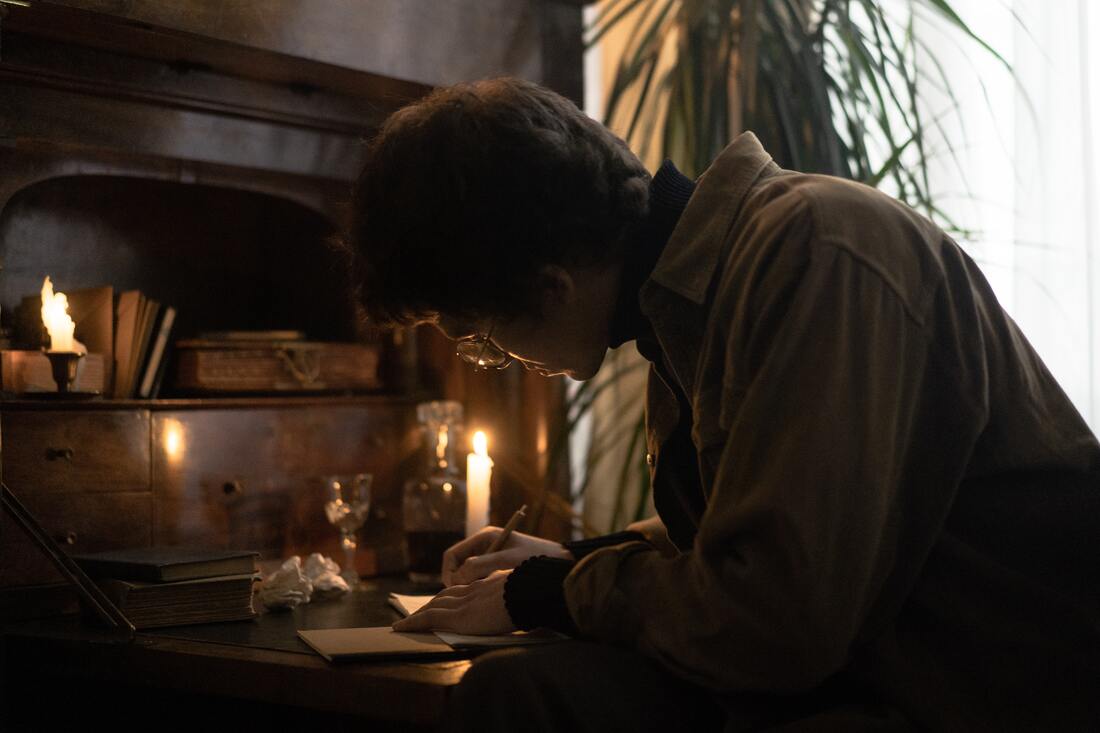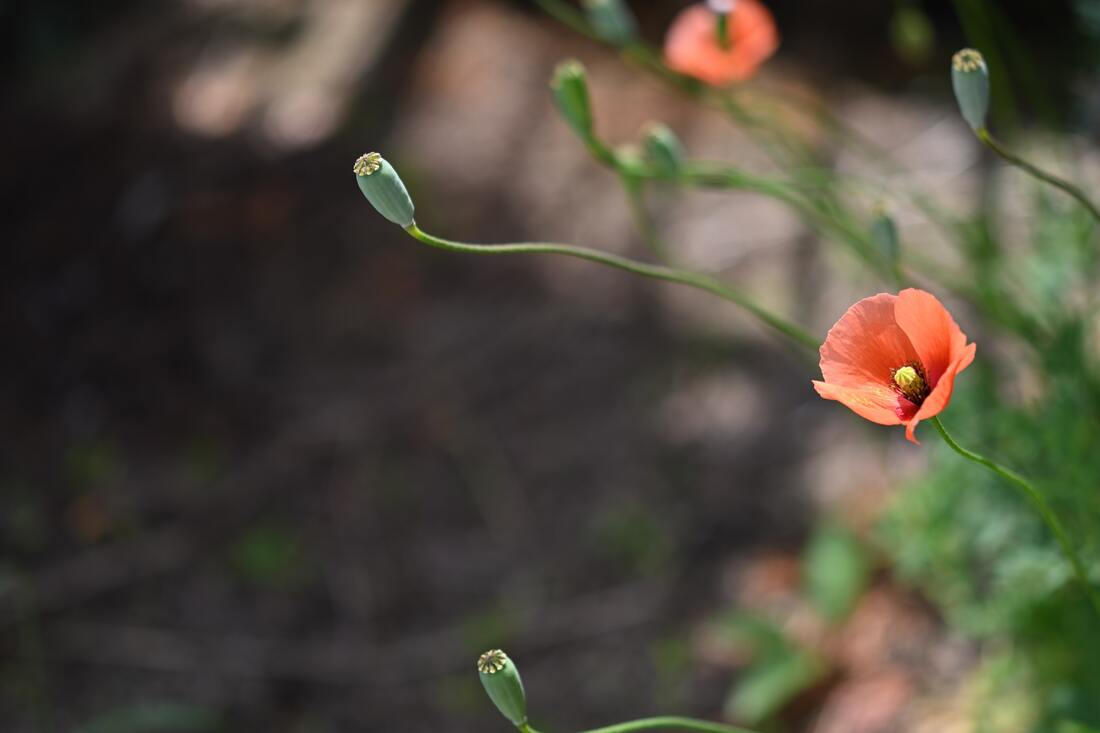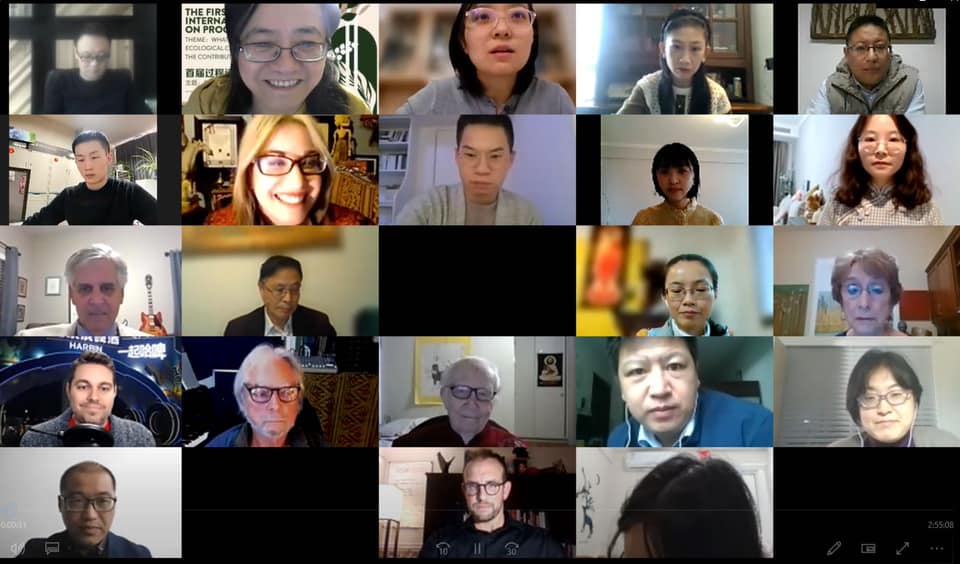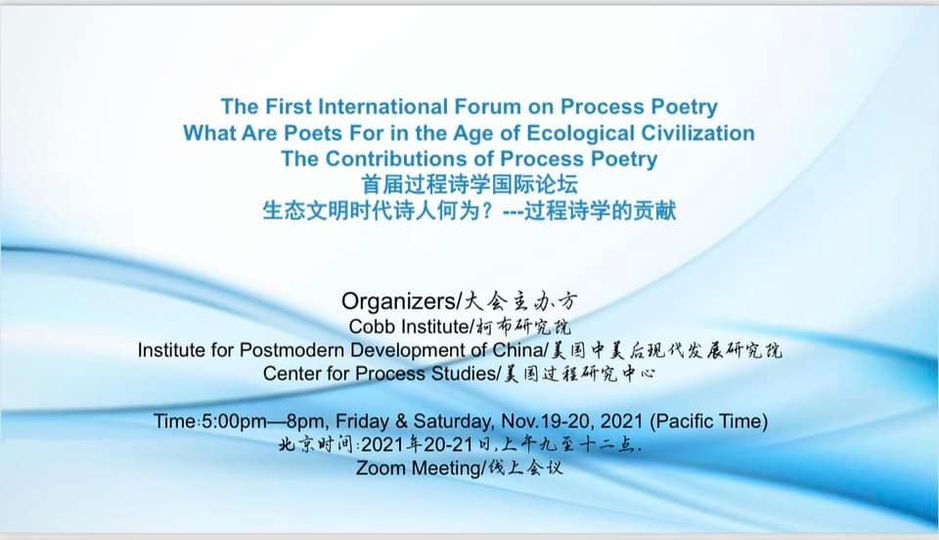The Process Poetry Movement
In November 2021 a remarkable conference was held online, featuring participants from different parts of the world, mostly Chinese and Americans. It was called What are Poets for in the Age of Ecological Civilization: The Contributions of Process Poetry. It was sponsored by the Cobb Institute, the Institute for the Postmodern Development of China, and the Center for Process Studies.
I say "was held" but I might better say "is being held," because I write this after the first day of the event, but before the second. I was one of the keynote speakers on the first day as was a leader of the Process Poetry movement in China: Bai Ya. His paper titled "Process Theory of Poetry: The Self-Awareness of Poetry in the Age of Ecological Civilization." His excellent paper made the case that, in our time, there is a need for poetry that draws upon multiple traditions and that helps us recover our sense of harmony with the more-than-human world. He emphasized the the hope that such poetry can move beyond the sterility and absurdity of both "modern" and "postmodern" ways of thinking into something new, holistic, good for society, and good for the earth. What impressed me about his talk, in addition to its content, was that it was well received by so many young Chinese poets. He is a true leader.
In preparing my remarks, I really didn't know what Process Poetry meant; and I'm still a little unsure. But what I discovered is that the very phrase Process Poetry has a great deal of traction in mainland China, thanks in part to Bai Ya, and that many of the poets who claim the phrase are young, creative, and thoughtful. They see Process Poetry as something many people, not simply academic elites, can create. The very creation of such poetry is personally therapeutic; it helps people find themselves. And it is also socially relevant. It can help their culture grow past its hyper-industrialized, spiritually vacuous tendencies. Indeed, for them, the creation of Process Poetry is a spiritual practice, even as it is not associated with any religious tradition. It is a way of finding your soul in a complex and hurried world.
As I prepared my remarks, I tried to build upon the poems they had written for the conference, as well as the poems Americans had written. Thus, I developed my own provisional understanding of Process Poetry from the ground up. I enclose on this page an abstract of my essay and the essay itself. Perhaps it can help you, too, develop your own understanding of Process Poetry and create some poems yourself. The Process Poets in China hope that Process Poetry will be a global movement. Some of our speakers were indeed from around the globe, Russia and Hungary in particular. A journey of a thousand miles begins with one step or, better, one zoom conference. May the journey continue.
- Jay McDaniel, 11/20/2021
I say "was held" but I might better say "is being held," because I write this after the first day of the event, but before the second. I was one of the keynote speakers on the first day as was a leader of the Process Poetry movement in China: Bai Ya. His paper titled "Process Theory of Poetry: The Self-Awareness of Poetry in the Age of Ecological Civilization." His excellent paper made the case that, in our time, there is a need for poetry that draws upon multiple traditions and that helps us recover our sense of harmony with the more-than-human world. He emphasized the the hope that such poetry can move beyond the sterility and absurdity of both "modern" and "postmodern" ways of thinking into something new, holistic, good for society, and good for the earth. What impressed me about his talk, in addition to its content, was that it was well received by so many young Chinese poets. He is a true leader.
In preparing my remarks, I really didn't know what Process Poetry meant; and I'm still a little unsure. But what I discovered is that the very phrase Process Poetry has a great deal of traction in mainland China, thanks in part to Bai Ya, and that many of the poets who claim the phrase are young, creative, and thoughtful. They see Process Poetry as something many people, not simply academic elites, can create. The very creation of such poetry is personally therapeutic; it helps people find themselves. And it is also socially relevant. It can help their culture grow past its hyper-industrialized, spiritually vacuous tendencies. Indeed, for them, the creation of Process Poetry is a spiritual practice, even as it is not associated with any religious tradition. It is a way of finding your soul in a complex and hurried world.
As I prepared my remarks, I tried to build upon the poems they had written for the conference, as well as the poems Americans had written. Thus, I developed my own provisional understanding of Process Poetry from the ground up. I enclose on this page an abstract of my essay and the essay itself. Perhaps it can help you, too, develop your own understanding of Process Poetry and create some poems yourself. The Process Poets in China hope that Process Poetry will be a global movement. Some of our speakers were indeed from around the globe, Russia and Hungary in particular. A journey of a thousand miles begins with one step or, better, one zoom conference. May the journey continue.
- Jay McDaniel, 11/20/2021




